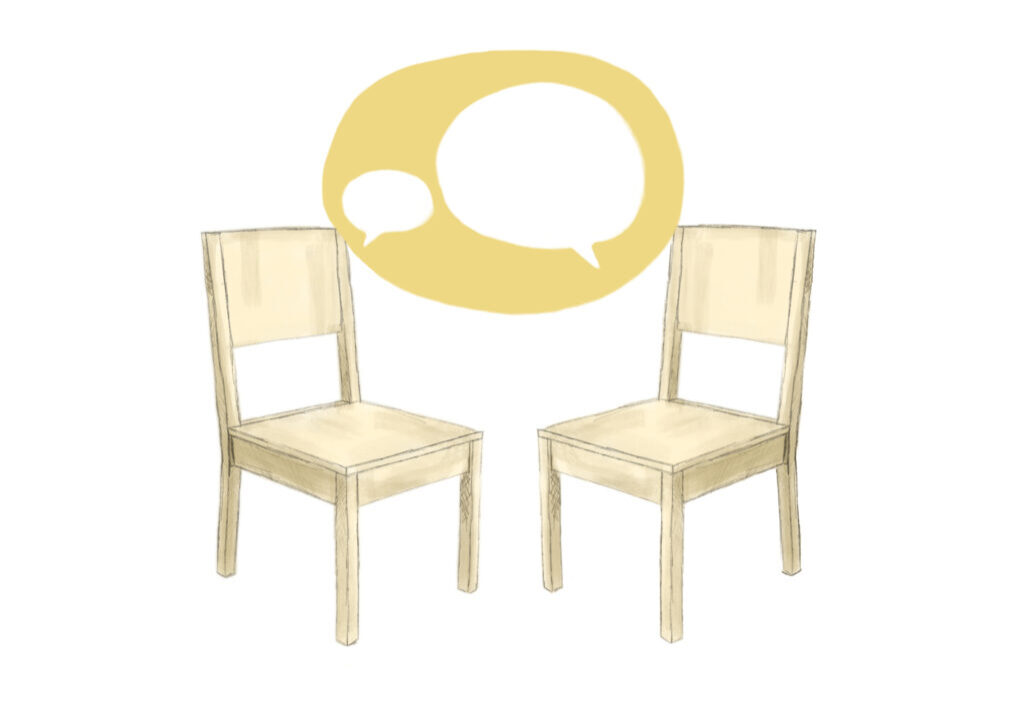Standing on Shoulders

“I was very fortunate because…people had gone through it already, you know, my brothers.”
[iframe width=”100%” height=”166″ scrolling=”no” frameborder=”no” allow=”autoplay” src=”https://w.soundcloud.com/player/?url=https%3A//api.soundcloud.com/tracks/1018166080&color=%23ff5500&auto_play=false&hide_related=true&show_comments=false&show_user=true&show_reposts=false&show_teaser=true”]
Warning: story contains racial slurs. Find a bleeped version below.
[iframe width=”100%” height=”166″ scrolling=”no” frameborder=”no” allow=”autoplay” src=”https://w.soundcloud.com/player/?url=https%3A//api.soundcloud.com/tracks/1018167280&color=%23ff5500&auto_play=false&hide_related=true&show_comments=false&show_user=true&show_reposts=false&show_teaser=true”]
Recorded over Zoom. Edited by Rebecca Warner.
Transcript for Standing on Shoulders
I grew up in South Bend, Indiana which is very small-town. I think it’s—the population is about a hundred thousand. Being on the west side where I grew up—it was heavily populated by African Americans. Initially, when my parents purchased the home there were more white people in that area and then as I got older, the area became more black and brown. I think some of that might have had to do with the fact that Gary was beginning to lose industry and so people were leaving Gary and coming to South Bend because we had Bendix, we had Torrington. But, so, there was probably some influx of people coming from Gary to South Bend. But South Bend itself was very Polish. But then by the time we got to high school, which we all went to Washington High School in the late ‘70s, early ‘80s it had gotten to be a pretty decent mix?
I mean, Indiana is, like, Klan land. If you know anything about the history of Indiana, the Ku Klux Klan was very predominant in Indiana. So, there are those things that we had to deal with growing up in Indiana. I danced with a dance company. So, you have this little black boy running around—well, the dance company was in Osceola, Indiana, and Osceola is predominantly white, and I was in a dance company that was white. So, you have this little black boy driving around in the middle of the night to the white girls. My father said to my brother David one day, “I worry about that Dwain.” But that was real. His concern was real. Fortunately, nothing ever happened. But there were other people that I know of that have stories that they were accosted by the police. These things happened. And we knew of them.
I did get teased somewhat. Some of the other African American girls would say, “Are you going to go to high school and date white girls like your brothers?” Which really isn’t how it all happened anyway. All my brothers were in drama club and glee club. Those were predominantly white things. There weren’t a whole lot of black kids doing that. I—you know, I caught a little hell because I did have a girlfriend who was white, blah, blah, blah. Just a little. Not even enough to really even matter. From my peers. Now from the other people in school, you know, I did get called “nigga” and so on and so forth.
I was the lead in Babes in Arms my senior year and I had to kiss two young ladies in the show. The director talked to both of the parents of the girls to make sure it was ok for them to kiss the little black boy. He didn’t talk to my mom. I always thought that kind of interesting that he didn’t call up Mrs. Perry and say, “Hey, your son has to kiss these two white girls. Is that a problem? Should we not do it?” She didn’t get that call. Or if she did, she never told me.
Being in theater and choir and all that kind of stuff, being around white kids more, but then on Sundays going to Olivet AME Church, which was all-black—I would have to say that my life was pretty balanced. I was very fortunate because I was standing on shoulders of people who had gone through it already, you know, my brothers.
Hold a Conversation
Can you imagine leading a conversation about this story? Where? With whom? What kinds of questions would you pose? (See How to use the questions for reflection for one approach.) Please email your questions to us or post them in the comment box for our consideration. If you use them in an actual discussion, let us know how the conversation went.
